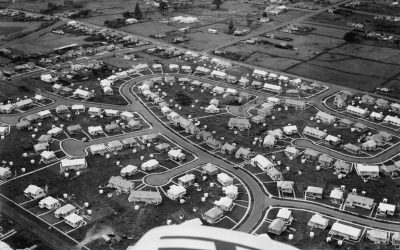There are a variety of ways for Victoria and surrounding municipalities to try to create affordable housing, some better than others.
One option is to have taxpayers finance more social housing. But that’s an inferior choice as it involves two absentee landlords – taxpayers themselves and government as an institution. Both have a less direct stake in making sure this or that property is well-maintained as opposed to someone with their own money directly invested.
Another tack is to require developers to build low-income housing as part of their development or “ask” for a contribution to government for the same purpose. But that only hikes the cost of homes for everyone else.
Or there’s always more rent control on existing suites – regrettably still in effect in B.C. That’s the worst of all options. Rent control sends out this signal: Don’t build new units because the government will determine your rate of return.
But all three approaches are inferior to a fourth and preferred option: Let homeowners get some help with their mortgages by creating secondary suites.
City councils across Canada have different policies and some are smarter and more realistic than others. Vancouver once did what Victoria has done – allowed an experiment in secondary-suite legalization in certain neighbourhoods.
That policy dated from the 1980s; Vancouver has since changed its bylaws (in 2004) to permit secondary suites city-wide.
One city hall planner in Vancouver told me there has been a sea-change in attitude over the past two decades, due in part to the average price of homes. Vancouver’s turnaround was an imitation of the municipality of North Vancouver, which sensibly legalized secondary suites in 1993 and in 1995 permitted the same in all single-family homes, regardless of previous zoning.
Before amalgamation in 1998, some Toronto-area cities banned secondary suites, though city halls and bylaw enforcement officers would – wink wink – ignore the practice, as did many neighbours.
After multiple cities combined, the Toronto practice came into effect for the newly merged megacity: It allows suites in single and semi-detached housing, although the house must be five years old. (That rule is designed to limit new neighbourhoods with single-family homes from having anything other than single families).
Toronto’s five-year ban on new home suites is unhelpful to homeowners and renters alike. It’s also unlike Vancouver and North Vancouver where new houses can be designed and built to include suites from the beginning.
Calgary, in the heart of entrepreneur-friendly Alberta, is where you’d think free markets and the property right of owners to do what they like with their homes might be entrenched. Not so.
There, city council ordered a yet-to-be-seen review of its secondary-suite policy only this past summer.
The existing approach doesn’t provide for legal suites in most cases and in most neighbourhoods. Most suites have long been illegal in Cowtown except for grandfathered units left over from an earlier era.
Victoria city council should follow Vancouver and North Vancouver, not Toronto or Calgary. Legalizing rental suites makes sense from just about any perspective.
Legalized and more secondary suites are better for the environment – more people will use existing roads, sidewalks and city services.
Taxpayers won’t have to finance as many government-owned rental units (and cities will gain back some revenue from slightly higher property taxes on legalized secondary suite homes).
It’s good for homeowners who need help with their mortgage and who otherwise won’t commit tens of thousands of dollars to create a rental suite unless they can know they can safely recover that investment (i.e., a neighbour’s complaint won’t shut them down).
Legalized suites are obviously helpful to tenants, not only to help them with more choices but because such suites are often rented at a discount compared to the main stock of rental housing.
Also, legalized suites are more likely to conform to city bylaws on wiring, access, sanitation concerns and other requirements (they can’t be legalized without coming up to standard). Without legalization, no tenant is likely to complain about a landlord’s infractions; the tenant and owner would both lose.
With full suite legalization, there are legitimate concerns over crowded streets and more cars; some of that can still be dealt with through proper zoning, some not.
But consider this: Many of us admire European cities for their liveliness and pedestrian- and bike-friendly cores.
The flip side of that is that Europeans are willing, quite sensibly, to make do with less living space per person than we expect in North America. People are less likely to own a car if they’re allowed to live near densely-packed urban areas.
If one goal of newly creative North American cities is to get people out of their cars and into public transit and walking or biking and to create livelier, more interesting cities, it would help if cities – Victoria included – allowed more people to live somewhere reasonably close to the core.
Sidney and Sooke are just a bit too far for the average bike commute.
–
Mark Milke is author of A Nation of Serfs?


